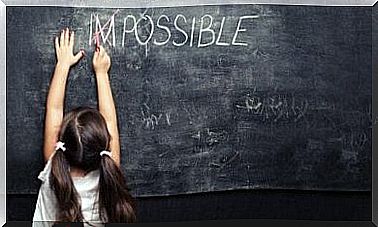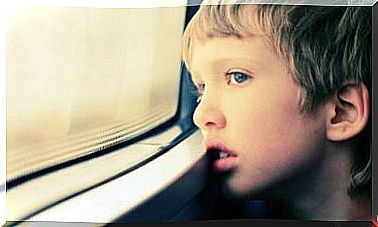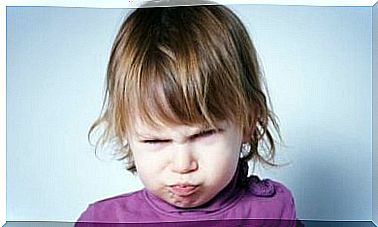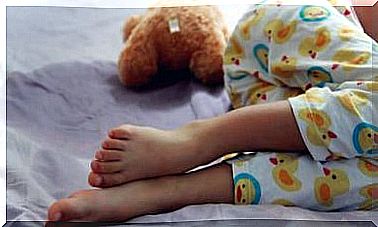Effects Of Bullying: 8 Tips To Deal With Them
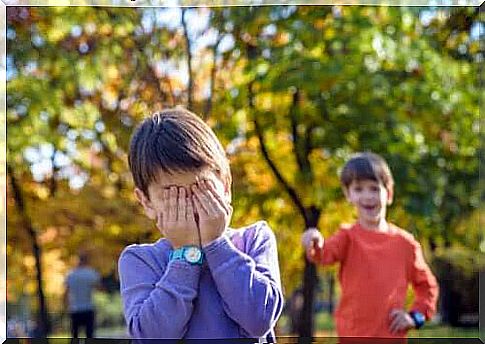
There are many children and adolescents who are unfortunately bullied (both physically and psychologically) in school. This abuse causes the victims to suffer deep emotional pain, which must be treated. In this space, you are about to discover some tips to mitigate the effects of bullying and to deal with it.
First, it is important to report abuse situations. And once these are overcome, it can be crucial to seek professional help to deal with the psychological consequences of abuse on the victim. Here we want to give you some tips to try to help her, but remember that they do not replace the support of a professional.
Effects of bullying: definition and analysis of the phenomenon
When we talk about bullying we refer to the violence or physical or psychological abuse carried out by one or more aggressors against a victim. Unfortunately it is a common situation among children and adolescents, for whom it can be a real trauma.

In fact, the victim suffers during the bullying episode, but also afterwards, due to the psychological consequences that such violence usually leaves. These can manifest themselves in the form of anxiety, nightmares, insecurity, depression, post-traumatic stress disorder, somatization, etc.
To put an end to bullying, in addition to intervening on the emotional damage suffered by the victim, it is also important to intervene on the aggressors, so that they stop doing it. Often, the attackers are insecure people, who try to feel superior by inflicting humiliation on those they consider inferior.
Tips for dealing with the effects of bullying
The ideal would be to intervene on both sides (victim and aggressor). In the following space we will focus on the victim, offering you some valuable tips to deal with the consequences of bullying.
Ask for psychological help
The first thing to do is to ask for help from a professional if your child or teen needs it. In some cases, the violence suffered is truly traumatic and therefore requires the intervention of a mental health professional to overcome fears, anxiety and, in general, the emotional consequences left by the abuse.
Trying to solve them yourself, without help, can be really difficult, since you don’t have the necessary tools to do it. The professional can be a doctor, a psychiatrist, a psychologist, etc.
Keep in mind that the victim is not at fault
Often children and adolescents who are bullied tend to feel guilty, but this is neither a healthy nor a realistic reaction. The responsibility for the violence suffered never lies with the victim, even if he might think it is.
Precisely for this reason we must help our children to become aware of the fact that the fault is always of the one who attacks and that the sense of guilt only makes the pain even stronger.
Accept the experience
To overcome the consequences of bullying it is important to accept the situation experienced. We are not saying that we must forget what happened, but that we must accept what happened and understand that the situation has already passed and that it has no reason to repeat itself.
This form of acceptance can be promoted by a mental health professional who offers tools to manage emotions and help transform pain.
Get away from negative thoughts of the effects of bullying
After experiencing this situation, victims can often express negative thoughts (of insecurity, self-destruction, fears, etc.). If these thoughts are disabling and are an important source of discomfort in children and adolescents, it is important that you work with a professional, because only this figure can offer a solution.
Express how it feels to deal with the effects of bullying
It is of some importance that you express your emotions, whether they are positive or negative. For children and teenagers, doing so is a way to understand what they have experienced and what impact it has had on them. Through the analysis of feelings and emotions they can progress and feel better and better.
Distance yourself from resentment
When someone hurts us, we often want revenge and feel anger at that person, but these are feelings that only intensify the sheer suffering; it is therefore important to distance yourself from resentment and accept the situation. This will help make the child or adolescent progress on the recovery path.
Strengthen
It must be made clear that the victims are real, special and precious people and that they deserve all the good that life has to offer them and that, despite the fact that they have lived through such a traumatic situation, they must have faith in themselves ; with commitment and self-esteem they will be able to achieve all the goals they want to achieve.
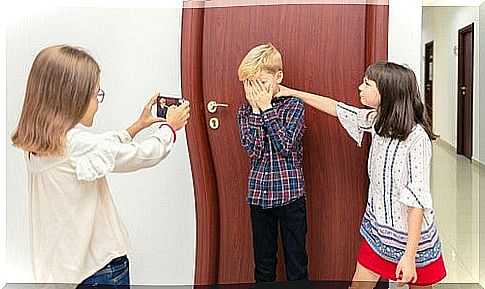
Transform the pain
Pain is a terrible emotion but it has a positive side, as it has the ability to make us struggle and strengthen us to push us to change the things that hurt us. We can turn that pain into art (painting, poetry, sculpture, etc.). The important thing is to focus on something that feels good, not pain.
